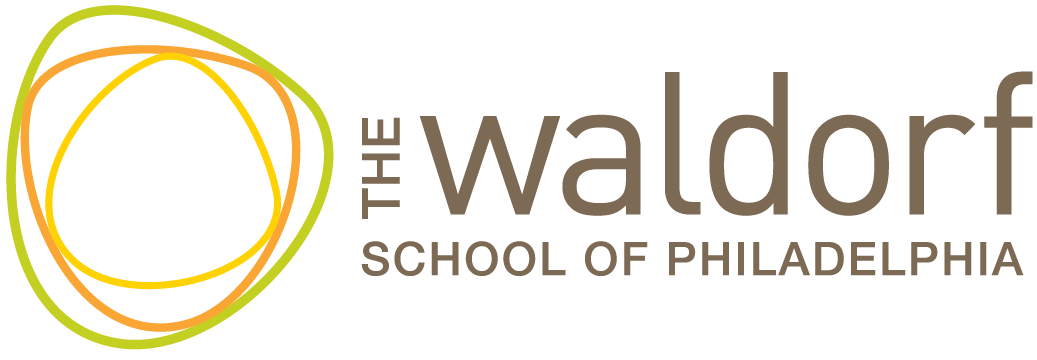
Special Subjects
At the Waldorf School of Philadelphia, practical and fine arts are integral, not ornamental.
Making connections across the curriculum
The Waldorf School of Philadelphia offers a fully integrated learning experience through an unparalleled array of special subject classes that complement and extend the core academic subjects. Classes are led by qualified specialists and working artists who guide students through a challenging, fun, liberal arts curriculum.
All students participate in special subject classes, allowing everyone to discover and develop their talents. These diverse classes deepen young people’s sense that they can try new things, building resilience and confidence. They reinforce academic subjects, cultivating interdisciplinary learning and introducing students to the spectrum of human culture and capacity.
Spanish Language
The Spanish language curriculum begins in the early grades through the telling of thematic stories, singing songs, reciting poems, and playing games rich in images. By middle school, students focus on Spain and its epic poetry, geography, legends, songs, and dances. Later, we delve into Latin American geography and history, including the cultures of the Aztec, Maya, and Inca peoples, as well as poetry from Latin American authors.
By Eighth Grade, reading comprehension and fluidity of oral work is the focus; students are now able to create their own stories. Their understanding of culture is expanded through the biographies of Simón Bolívar, Cesar Chavez, Benito Juárez, José Martí, and Frida Kahlo.
Handwork
The Handwork curriculum develops skills including knitting, crocheting, hand sewing, embroidery, felting, paper crafts, pattern design, and machine sewing. Some of the obvious benefits of the handwork program include improved hand-eye coordination; basic math skills such as counting, the four math processes, and basic geometry; the ability to understand and follow a process from concept to completion; and the ability to focus on a project for an extended period of time.
There are also more subtle rewards that complement these obvious benefits. Students prepare and care for materials, create items with practical uses (a case for a flute, a needle book, a pair of socks) and, through design and color choice, build executive function and project planning skills, express individual creativity, and develop a refined aesthetic sense.
Music
Music is an essential part of the Waldorf curriculum and permeates the school day from early childhood through eighth grade. Music not only yields proven benefits to the brain’s plasticity and functioning, it enlivens the spirit. Through the study of music, students learn to sensitize their hearing, allowing them to better listen to the sounds of the world and each other.
String Orchestra
Led by our experienced string orchestra teacher, students in Fourth through Eighth Grade participate in weekly string orchestra class. All students have the opportunity to experience the joys of learning to play a stringed orchestral instrument. Weekly orchestra instruction complements a student’s private string instrument class. Students may choose to play violin, viola, bass, or cello. Fourth graders participate in their own training orchestra during a 40-minute period each week. Fifth through Eighth graders are grouped by ability into two orchestras, Sinfonia Orchestra and the more advanced Chamber Orchestra.
Woodwork
Woodwork class begins in Fourth Grade. Students first learn to complete simple shapes using fundamental tools including the handsaw, chisel, gouge, rasp, and sandpaper. With these tools, students learn to shape, smooth, and polish wood. The underlying goal of woodwork class is to teach students patience, perseverance, and pride in completed work. Lessons from other disciplines are reinforced through woodworking. After learning about concave and convex surfaces in geometry, the students are challenged to chisel a serving spoon or bowl. Designs become increasingly difficult as the grades progress. Students acquire various joint techniques, including the dovetail joint. All of this work takes place under the guidance of our experienced woodworking teacher in our dedicated woodworking shop.
Games
The Games curriculum at the Waldorf School of Philadelphia grows from the belief that spatial awareness and intelligence, as well as joy in physical movement, are essential components of a full and balanced life. Students explore movement activities ranging from imaginative or strategic games to tackling challenging obstacle courses. Our multifaceted program provides the opportunity for students to truly play as they develop their skills.
Importantly, our games curriculum focuses on students playing with each other before they play against each other. Learning to collaborate before competing enables students to enter into healthier relationships with their bodies, athletics, and each other.
Movement
The Movement curriculum helps students learn to move in thoughtful and collaborative ways with others. Promoting skills like cooperation, spatial and sensory awareness, midline crossing for neurological development, motor skills, and more. As the movement curriculum becomes more complex through the years, students learn to move in complicated ways, aiding them in their academic studies and developing focus and concentration.








